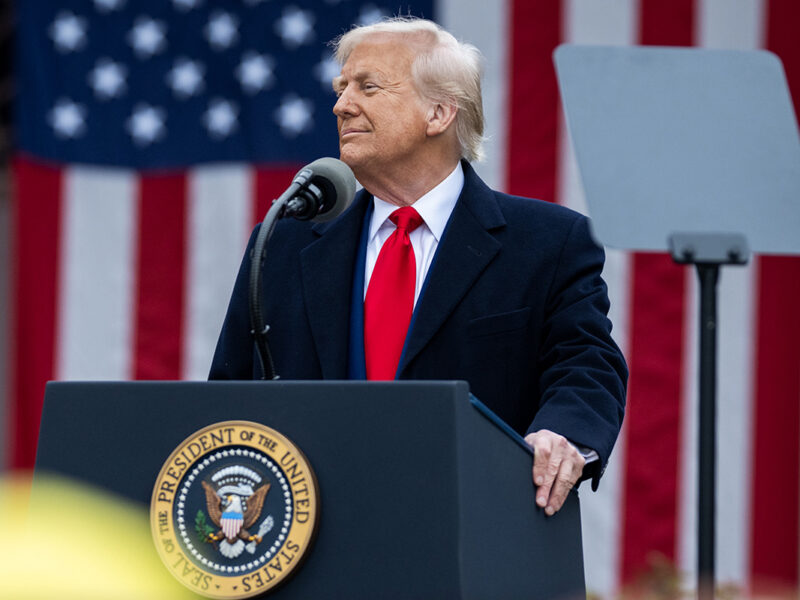The heads of the World Trade Organisation and International Monetary Fund issued stark warnings on Thursday about the potential economic fallout from President Donald Trump’s sweeping new tariffs, warning that the measures could trigger a significant contraction in global trade and threaten already sluggish worldwide growth.
WTO Director-General Ngozi Okonjo-Iweala said the new US tariffs, combined with those introduced earlier this year, could lead to a contraction of around 1 per cent in global merchandise trade volumes in 2025.
“I’m deeply concerned about this decline and the potential for escalation into a tariff war with a cycle of retaliatory measures that lead to further declines in trade,” Okonjo-Iweala said in a statement.
The WTO chief warned that the tariffs would create significant “trade diversion effects” and noted that the Geneva-based organisation now administers only 74 per cent of global trade, down from around 80 per cent at the beginning of the year due to recent tariff measures.
In a separate letter to WTO member states seen by Reuters, Okonjo-Iweala acknowledged receiving “many” questions about the impact of Trump’s tariffs.
“Many of you have been in touch about the US announcement on tariffs, asking for the Secretariat to provide an economic analysis of the impact of these tariffs and any potential reaction on your trade,” she wrote, promising that the organisation would respond to their queries.
Meanwhile, IMF Managing Director Kristalina Georgieva issued her own warning about the economic risks posed by the escalating trade tensions.
“We are still assessing the macroeconomic implications of the announced tariff measures, but they clearly represent a significant risk to the global outlook at a time of sluggish growth,” Georgieva said in a statement.
“It is important to avoid steps that could further harm the world economy. We appeal to the United States and its trading partners to work constructively to resolve trade tensions and reduce uncertainty,” she added.
The IMF plans to share a detailed assessment of the tariffs’ impact in its upcoming World Economic Outlook, scheduled for release during the IMF/World Bank Spring Meetings later this month.
Trump’s tariff impact
Trump’s tariffs, which impose a baseline 10 per cent duty on all imports and higher “reciprocal” rates of up to 54 per cent on countries with significant trade surpluses with the US, have already triggered market turbulence and promises of retaliation from major trading partners.
Analysts at Saxo Bank noted that commodities have suffered broad declines since the announcement, with the Bloomberg Commodities Index down around 1.2 per cent since Monday. Losses have been concentrated in growth-dependent sectors like energy and industrial metals, reflecting concerns about potential economic slowdown.
“What Trump delivered on this so-called ‘Liberation Day’ was an economic war declaration likely to cause chaos across global supply chains, while in the short term raising the risk of an economic fallout, hurting demand for key commodities,” Saxo Bank analysts wrote in a report.
Regional experts suggest varying impacts across different economies. Hamza Dweik, Head of Trading and Pricing for the Middle East and North Africa at Saxo Bank, noted that even countries not directly targeted by the tariffs could face significant indirect effects.
“Any global economic slowdown triggered by these tariffs could lead to a drop in oil prices, straining [oil-exporting] economies,” Dweik said, while adding that currency pegs to the US dollar could further complicate the economic picture for some nations.
European Commission President Ursula Von Der Leyen has described Trump’s announcement as “a major blow to the world economy,” as the EU faces a 20 per cent tariff on its exports to America.
Observers say the US determination to double down on tariffs risks sidelining the WTO and its free-trade mandate at a time when the organisation is already struggling to maintain its relevance in global trade governance.
The White House has said the tariffs would remain in effect until “the threat posed by the trade deficit and underlying nonreciprocal treatment is satisfied, resolved, or mitigated,” with Trump retaining authority to adjust rates based on trading partners’ responses.










